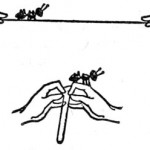In 2014, I’m reading and blogging through Pope Francis/Cardinal Bergoglio’s Open Mind, Faithful Heart: Reflections on Following Jesus. Every Monday, I’ll be writing about the next meditation in the book, so you’re welcome to peruse them all and/or read along.
In this week’s reading, Pope Francis discusses what we do with untransfigured pain and suffering:
Our limitation and our weakness can be transformed by prayer into a cross…. The problem is that when we concentrate only on external hindrances, we stop praying and start complaining. We are no longer servants of the Gospel but take on victim status. We canonize ourselves and seek to do away with all limitations. We learn to disguise our weakness with the incense of our saintly status. The victim is not Christ; it is myself. This is the beginning of all blasphemy, and blasphemy is the highest form of anti-prayer.
…Flesh that is accustomed to blasphemy, flesh that knows nothing of seeking help for its own sinful sores, is flesh that is unable to help with the sores of others. It will invidiously keep its distance from the other. It will never be a neighbor to anyone but itself.
I think I treat complaining the same way I do the cheap grocery store cookies that turned up in our apartment after a party. Even though I’ve tasted them before, and I know they weren’t particularly satisfying (in fact, they’re cloying), once they’ve been put out, I don’t believe my own experience. It feels natural to reach out and take one, even though I can predict exactly what will happen: I’ll eat one, not particularly enjoy it, and then be bothered by the aftertaste.
In a similar way, when I am frustrated, I have a desire to complain to other people, even though, just like the cookie, I’ve tried it often enough before to know that the taste is pretty much ashes in my mouth. Complaining is different than seeking help with confusion, for which other people are useful, as I try to decide what to do. Complaining is more a way I respond to things outside my locus of control, that doesn’t wind up guiding my actions (since no action is needed). Just like I half-expect the cookies to be delicious, I half-expect complaining to be cathartic, but it pretty much never is.
I’m usually just gossiping about another person, who wouldn’t be known at all to my interlocutor but for my carping, and really doesn’t deserve to be introduced through the story of how they inconvenienced me or hurt my feelings. I’ve engineered a situation that cannot be cathartic, since if my friend reacted strongly (“What a bitch!“) I’d know it was unjust, and that I’d drawn a friend into anger, but, after a lengthy vent, the true response (“Ah, too bad. The other person must be having a rough week, too.”) feels like an anticlimax.
I don’t quite take the path of King Midas’s hairdresser, digging a hole and whispering my kvetch. Usually, I ping-pong between not complaining, but being distracted by the desire to, and complaining and being disappointed by the results.
I know what the solution to this kind of “I do not do the good I want, but the evil I do not want is what I do” problem is when it occurs at the scale of cookies. I don’t buy them in the first place. And I throw them out if someone gives them to me.
But I’m less clear on what to do with intangible sources of temptation. Any successes to share?













